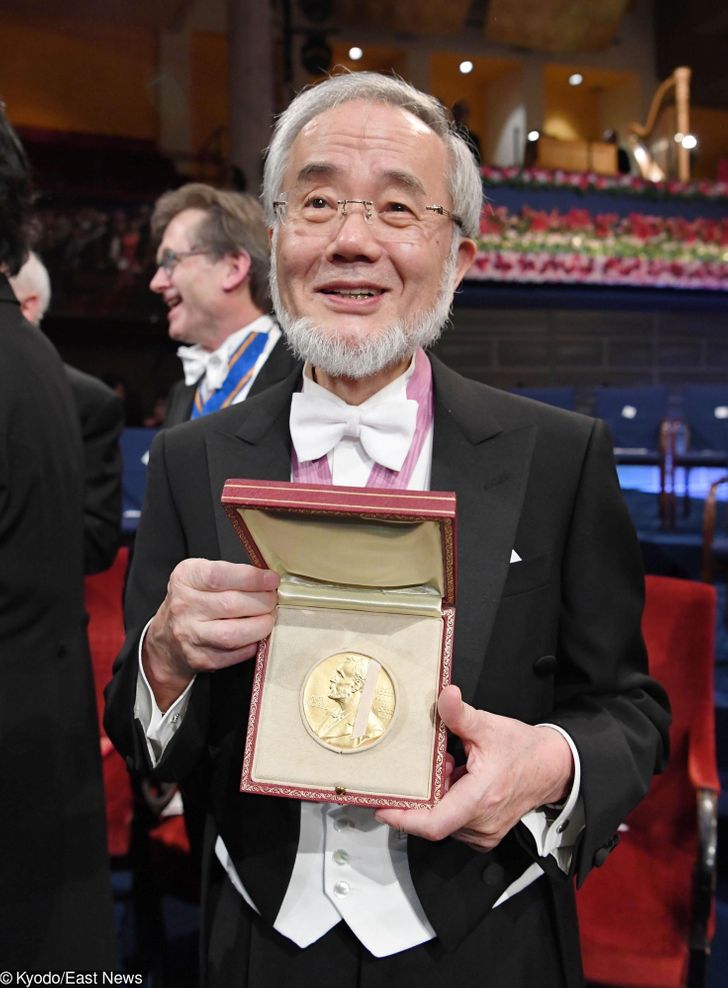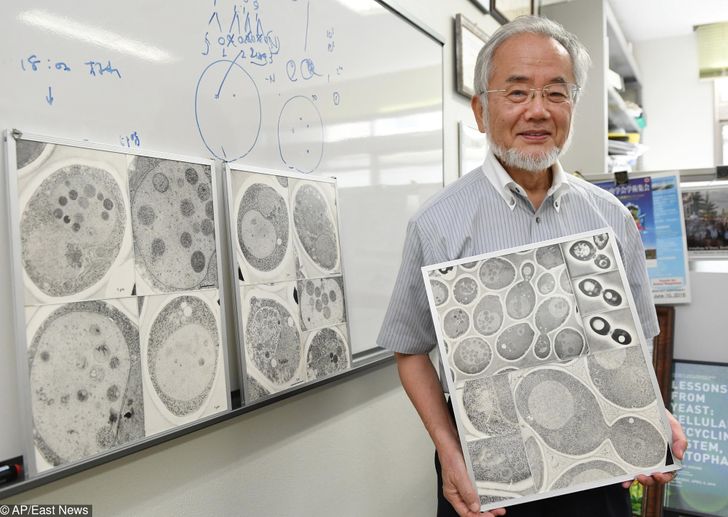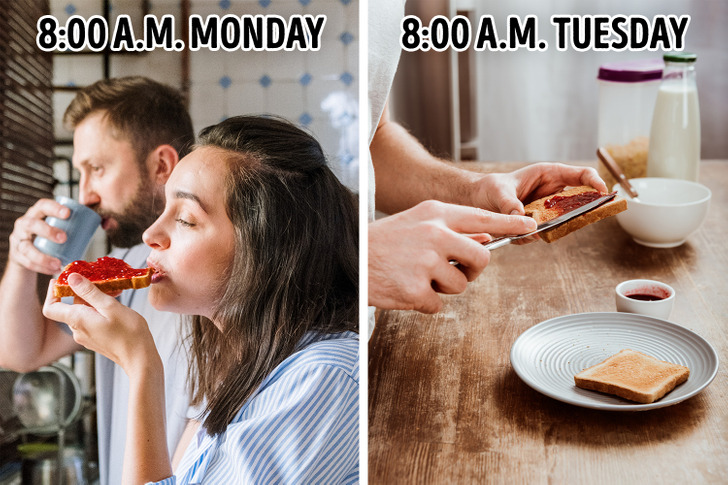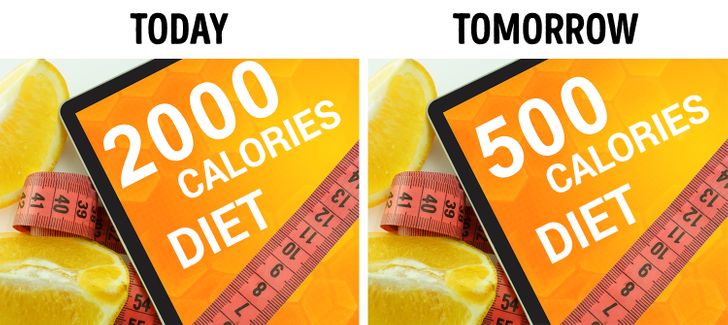Someone please help me to understand this concept for Diabetes people. How they can follow fasting, as Doctors do not recommend for them.
What Happens to Your Body If You Practice Fasting
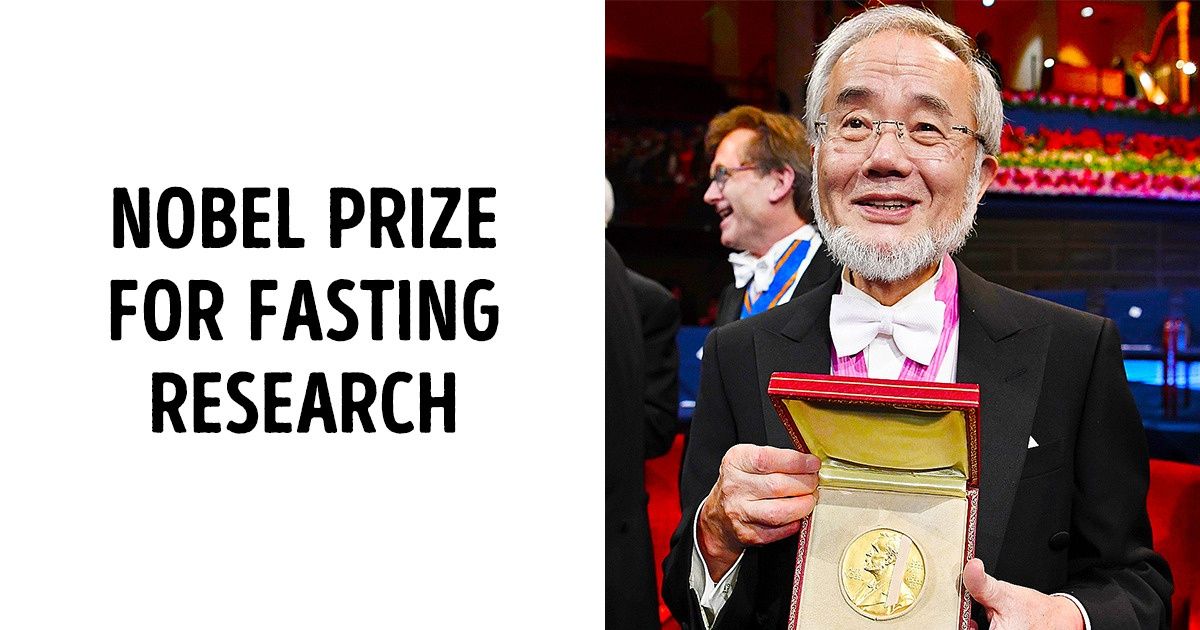
Our bodies’ cells disintegrate and then recycle their own parts constantly. In 2016, Dr. Yoshinori Ohsumi, from Japan, received the Nobel Prize in Physiology or Medicine for discovering the mechanisms behind this process known as autophagy. Most of the tissues in our bodies replace their cells with new ones on a regular basis. Each organ needs its own time to renew itself completely. However, other tissues never replace their cells.
We at Bright Side are amazed by Dr. Ohsumi’s discovery, and now we’ll tell you how to put it into practice.
An investigation with a revealing result
Dr. Ohsumi, a Japanese cell biologist, spent years studying how human cells recycle their trash. This process is scientifically known as autophagy. It is composed of the Greek words auto, which means “self,” and phagein, which can be translated as “eating.” It sounds a bit disturbing, but this process helps to keep you stable. With the help of lysosomes (organelles responsible for degrading intracellular material), your body can break down different protein structures and transform them into amino acids. Later, it uses this to create more cells.
Our body can use its own protein supply stored in the form of damaged cells and bacteria. The average person consumes approximately 70 g of protein daily, which is not enough to create new cells. When using the “protein waste,” your body is nourished with the necessary amount. When the natural recycling mechanism doesn’t work, the damaged cells and their components accumulate in the body. Thus, it’s impossible to neutralize cancer cells and cells infected with dangerous bacteria and viruses. That’s why you can end up with many serious diseases.
How to induce autophagy
In all his studies, Dr. Ohsumi used fasting to stimulate the body to break down toxic cells and get rid of all the waste. When you fast, your cells live longer and produce more energy. Your body has less inflammation. In addition, if you choose to restrict the number of calories you consume, nitric oxide levels in your body will increase — this is a molecule that helps detoxify and rejuvenate the body. Intermittent fasting, which consists of alternating periods of food and fasting, can help the body cleanse itself. In addition, it helps to lose weight and speed up metabolism. The benefits of this method for your health are numerous and include a decreased risk of heart disease, neurological problems, and diabetes, as well as a reduction in inflammation, oxidative stress, and blood pressure. There are many types of fasting, so you can choose the strategy that you like or that suits your lifestyle best.
24-hour fasting
If you lean toward this method, you should choose one day of the week when you don’t eat. On the other hand, it is also possible to have breakfast at 8 AM on Monday and not eat until 8 AM on Tuesday.
Intermittent fasting
If you have chosen this option, you should eat as you usually do for one day and fast the next day. That doesn’t mean that you shouldn’t eat at all on fasting days. If you consume 2,000 calories on a regular day, you should reduce the number to 500 calories on a fasting day.
Skip your meals
If you’re new to the world of fasting and it seems a bit intimidating, start skipping your meals. In general, just avoid one meal a day to boost your metabolism and activate cleansing processes in your body. Remember that if you’ve skipped a meal, you should not overeat during the next one.
Limited fasting
Limited fasting is a type of intermittent fasting. To follow it, you should eat only for 8 hours a day, every day. Another name for this method is “fasting 16/8” because you don’t eat during the remaining 16 hours. If you are new to this method, try a less strict scheme. You can have breakfast at 8 AM and have dinner at 6 PM. Thus, you will only spend 14 hours without food. Once you get used to this, reduce the time you are allowed to eat.
Water fasting
If you decide to follow this strategy, you must choose one day of the week and only drink water or fresh juices without sugar. The best time for this is spring, but you can also follow this diet throughout the year.
What do you think of this discovery? Do you practice fasting or would like to try it after reading this article? Tell us in the comments!
Comments
I’ve done 24-48 hour fasting every few months for 8 years and now look incredible at 43. I look younger and I’m thinner and healthier than I was at age 33 or 23. I use the cleanse for life drink from Isagenix that naturally supports your body’s fasting process. My video on Isagenix cleanse went viral on YouTube. You can look me up. Laura St. John and Isagenix cleanse on youtube — to see for yourself how to do it. If you want to order it let me know. I’d be happy to help. This article is fantastic.

That's amazing I'm doing Ramadan now I feel so good doing it. I have answers now to my friends at work who asking my why you punishing your self. Great news
Practise fasting during the Holy Month of Ramadan,because, our Creator knows the best formula of fasting?!
Muslims say that the mighty God order them to fast 30 day / year from the down to sunset for their body's sake
Related Reads
I Refuse to Sacrifice My Retirement to Help My Unemployed Son, I’m Not His ATM

My DIL Pretended She Doesn’t Know Me in Public, and It Shattered Me

12 Heartwarming Moments That Show How Family Kindness Saves Lives

My Neighbor Disrespected My Privacy—My Revenge Was Sweet

My MIL Stole My Daughter’s $50K College Fund—The Consequences Were Immediate

I Refuse to Let a Strange Lady Touch My Rare Birthmark for "Good Luck"—Now I’m Being Threatened

My Parents Refused to Support Me Through Med School—Then I Discovered Their Sad Secret

10 Teachers Who Learned Life Lessons From Their Remarkable Students

I Refuse to Help My Parents Who Abandoned Me at 18

15 “How We Met” Stories Destined to Become Family Legends

I Refused to Put My Health at Risk Because of My Job, Now HR Got Involved

18 Stories That Prove Simple Kindness Is the Loudest Statement of All

